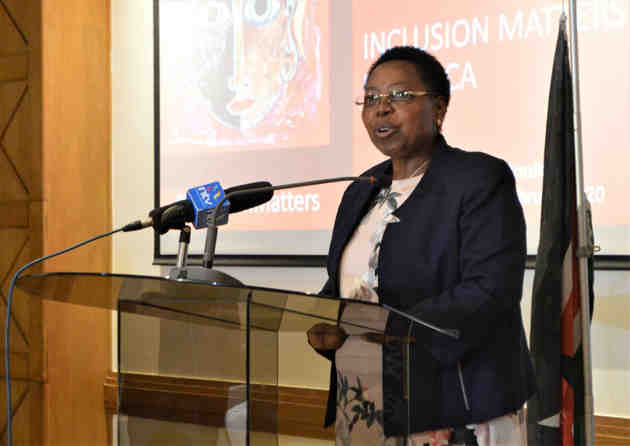STATUS OF GENDER EQUALITY IN THE JUDICIARY
The National Gender and Equality Commission (NGEC) in collaboration with the International Association of Women Judges (IAWJ)-Kenya Chapter with support from the International Development Law Organization (IDLO) facilitated an introspective institutional audit of the Judiciary on the principles of gender and inclusion as key constitutional imperatives. The Gender Audit sought to analyze the gender sensitivity and responsiveness of the Judiciary as a whole in its internal operations and delivery on its external mandate. This involved looking at how the Judiciary managed its workforce and how it delivered justice to its constituents.
The Gender Audit revealed that the Judiciary is gradually and progressively becoming receptive to the principles of gender equality and non-discrimination. Most importantly, the audit found out that a body of constitutional jurisprudence on gender equality has started to develop which recognizes the historical gender discrimination that has disadvantaged women in Kenya. This is the necessary step in applying a purposive approach to interpreting gender equality rights and realizing substantive equality for both women and men.
The following key issues of concern were identified by the gender audit:
- The Judiciary Strategy ending 2019 did not include explicitly reference or obligate the directorates and the departments to allocate resources to promote gender equality and inclusion related interventions.
- The Judiciary Training Institute did not often and consistently provide for training on gender equality and how to apply it in service delivery and the workplace; Discrimination was largely understood to only encompass direct discrimination based on formal equality.
- The Judiciary lacked a formal plan or a framework for achieving gender parity within specific timeframes in its senior leadership positions.
- The Judiciary did not have a policy addressing the use of affirmative action so that it could be applied consistently when warranted.
- Judiciary employees reported bullying and sexual harassment in significant numbers but complaints were rarely filed or successfully addressed.
- Gender-based accommodation for litigants was largely employee-initiated and not consistently practiced across all courts.
- The Judiciary did not collate, analyze and prepare reports with gender-disaggregated data on who was using the courts and the type of services they were using.
- Court processes and case management, including Court Annexed Mediation programs, were often not viewed from a gender perspective. Even in court decisions discussing constitutional principles, the language sometimes lacked gender sensitivity.
- Women appeared to participate less as litigants in the formal justice sector.
To help the Judiciary follow a path towards fulfilling its constitutional obligations, to uphold and promote gender equality, equity and inclusion, the National Gender and Equality Commission through the Gender Audit Report recommends that the Judiciary undertakes the following:
- Adopts a comprehensive gender policy;
- Takes measures to increase the number of women in senior leadership roles;
- Collects and analyses gender-disaggregated data across all fields beyond the total workforce;
- Develops and delivers a gender-sensitive and inclusive training curriculum for all employees;
- Puts safeguards in place to ensure fairness in court-annexed mediation;
- Uses simple education materials on equality and non-discrimination to educate the public; and
- Develops the Judiciary’s quality legal research ability.
The National Gender and Equality Commission will continue to monitor the implementation of gender mainstreaming in the Judiciary and provide the leadership of the Judiciary with the progress reports from time to time for their consideration.
The full report https://www.ngeckenya.org/Downloads/Judiciary_Kenya_Gender_Audit_Dec.pdf
Dr. Joyce M. Mutinda (PhD)
Chairperson


Comments